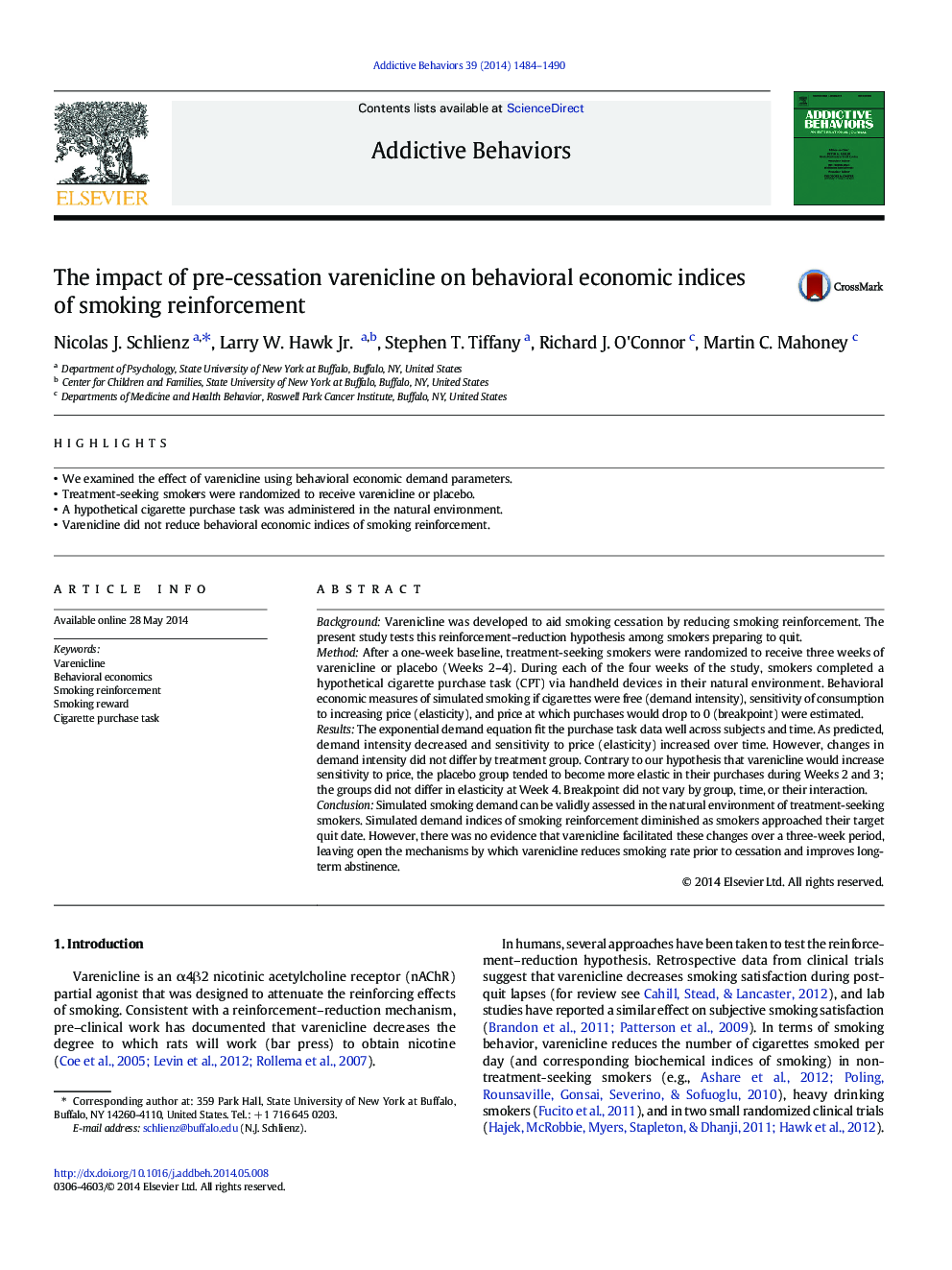| Article ID | Journal | Published Year | Pages | File Type |
|---|---|---|---|---|
| 898926 | Addictive Behaviors | 2014 | 7 Pages |
•We examined the effect of varenicline using behavioral economic demand parameters.•Treatment-seeking smokers were randomized to receive varenicline or placebo.•A hypothetical cigarette purchase task was administered in the natural environment.•Varenicline did not reduce behavioral economic indices of smoking reinforcement.
BackgroundVarenicline was developed to aid smoking cessation by reducing smoking reinforcement. The present study tests this reinforcement–reduction hypothesis among smokers preparing to quit.MethodAfter a one-week baseline, treatment-seeking smokers were randomized to receive three weeks of varenicline or placebo (Weeks 2–4). During each of the four weeks of the study, smokers completed a hypothetical cigarette purchase task (CPT) via handheld devices in their natural environment. Behavioral economic measures of simulated smoking if cigarettes were free (demand intensity), sensitivity of consumption to increasing price (elasticity), and price at which purchases would drop to 0 (breakpoint) were estimated.ResultsThe exponential demand equation fit the purchase task data well across subjects and time. As predicted, demand intensity decreased and sensitivity to price (elasticity) increased over time. However, changes in demand intensity did not differ by treatment group. Contrary to our hypothesis that varenicline would increase sensitivity to price, the placebo group tended to become more elastic in their purchases during Weeks 2 and 3; the groups did not differ in elasticity at Week 4. Breakpoint did not vary by group, time, or their interaction.ConclusionSimulated smoking demand can be validly assessed in the natural environment of treatment-seeking smokers. Simulated demand indices of smoking reinforcement diminished as smokers approached their target quit date. However, there was no evidence that varenicline facilitated these changes over a three‐week period, leaving open the mechanisms by which varenicline reduces smoking rate prior to cessation and improves long-term abstinence.
